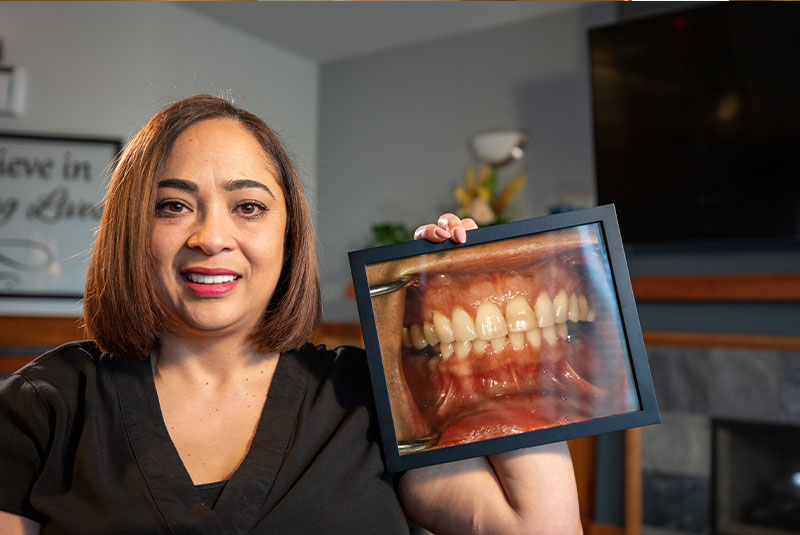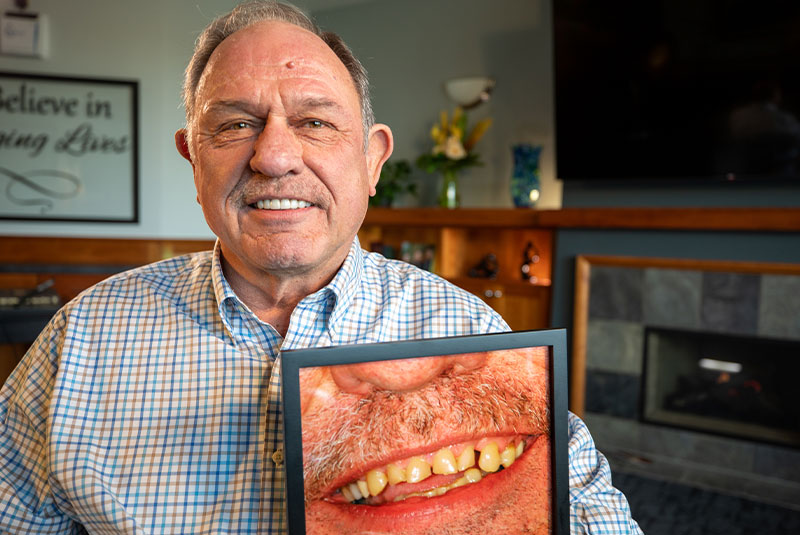Your smile is one of the first characteristics many will notice. You should feel confident in it, so we understand how impactful broken, missing, chipped, gapped, or stained teeth can be on your oral health and self-esteem. Cosmetic dentists can correct your dental concerns and bring your best smile to life with a complete smile makeover. Our Sherwood, OR office can add a personalized touch to your smile through aesthetic dentistry.
We believe everyone deserves unique, healthy, and beautiful smiles! Our restoration dentists, Dr. Doyel and Dr. Aanderud specialize in bringing your dream smile to life so it looks, feels, and functions naturally while lasting a lifetime.
A full smile makeover is a process of improving the appearance of your smile through one or more cosmetic dentistry procedures such as dental veneers, orthodontics, composite bonding, dental implants, or even teeth whitening. If you’re suffering from chipped, cracked, discolored, or even misaligned teeth, a cosmetic dentistry smile makeover may be what you’re looking for.
Our smile makeovers can improve your smile’s look, feel, and function in just a few treatments so you can show off your best smile yet!

Since our smile makeovers correct cosmetic concerns, they are often considered just a cosmetic procedure. However, complete smile makeovers have benefits beyond a straight, white smile. Cosmetic dentistry can serve as a confidence booster and account for smoother speech. Smile makeover treatments can also significantly reduce the risk of severe and long-term health concerns by creating a healthy smile that addresses multiple dental concerns, making for a more streamlined treatment plan.
If you’re noticing signs of dental concerns such as discolored, chipped, cracked, or even misaligned teeth, failing to see our cosmetic dentist could result in more complex treatments to remedy gum disease, a bad bite, jaw pain, and tooth decay. With cosmetic dentistry, you can put your dental concerns to rest and enjoy the benefits of a fully functional, healthy, and beautiful smile that can last a lifetime!










If you're a good candidate for veneers
A Digital Smile Design to show you what you will look like with your new veneers!
Pricing and options for treatment
And best of all... a time to speak directly with our dentists. Top Cosmetic Dentists in Oregon!
